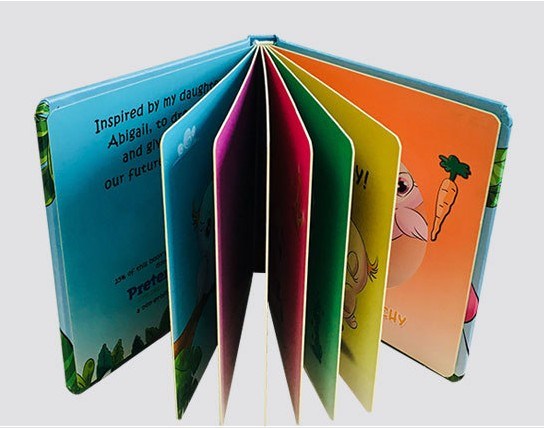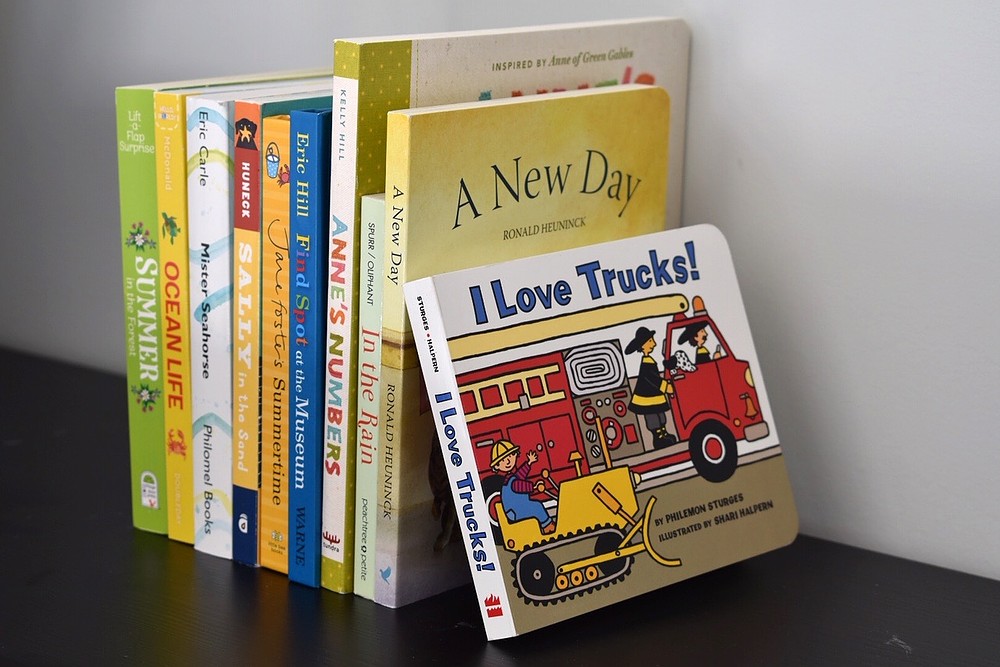This post may include affiliate links – check our Privacy Policy
The world of children’s literature is diverse and rich, offering various formats for different developmental stages. One such format, essential for early childhood development, is the board book. This article delves into what makes a board book special, its benefits for children, and how it differs from other book formats.

Table of Contents
Defining the Board Book
Characteristics of a Board Book
A board book is designed with durability and safety in mind, featuring thick paperboard pages and a paperboard cover. Unlike regular books, the pages of a board book have multiple layers of paper thickness, making them sturdy and resistant to wear and tear.
The Purpose and Benefits
Early Literacy Development
Board books play a crucial role in early literacy development. They are often a child’s first introduction to books and reading, providing a tactile and visual experience that stimulates learning and curiosity.
Safety and Durability
The design of board books ensures safety for young children. The thick pages prevent paper cuts, and the rounded corners reduce the risk of injury. The sturdy construction withstands rough handling, making them ideal for babies and toddlers.
The Design and Production
Materials and Manufacturing

Board books are made with non-toxic, safe materials, adhering to strict health standards, especially in regions like the EU and the USA. The production process ensures the books are not only durable but also safe for children who tend to explore with their mouths.
Environmental Considerations
Many publishers are now using sustainable materials and eco-friendly practices in the production of board books, addressing environmental concerns.
Board Books vs. Other Formats
Board Books vs. Hardcover Books
While both are durable, hardcover books have a thin paper interior protected by a hard outer cover, whereas board books are made entirely of thick paperboard. Board books are more suitable for younger children due to their robustness and safety features.
Board Books vs. Paperback Books
Paperback books, while more affordable, are less durable and not as child-friendly as board books. They are better suited for older children who have developed careful handling of books.
Child Development and Board Books
Cognitive and Motor Skills

Board books encourage the development of cognitive skills through simple stories and concepts. Their design also supports the development of fine motor skills as children learn to turn pages and interact with the book.
Emotional and Social Development
Reading board books with children fosters emotional bonding and social interaction, providing a shared activity that strengthens connections.
Choosing the Right Board Book
Age-Appropriate Selection
The content of board books varies, catering to different stages of early childhood. Choosing age-appropriate books is key to ensuring they are engaging and beneficial.
Themes and Diversity
Selecting board books with diverse themes and representations is important for broadening a child’s understanding and acceptance of the world.
The Role of Parents and Educators
Reading Habits
Parents and educators play a crucial role in establishing healthy reading habits. Regularly reading board books to children fosters a love for reading and learning.
Interactive Reading
Techniques like pointing to words and images, and asking questions during reading, enhance the learning experience and make reading a board book more interactive and engaging.
Conclusion
Board books are a fundamental part of early childhood education, offering safe, durable, and engaging ways for children to learn and explore the world of reading. They provide a unique experience that other book formats cannot replicate, making them an essential investment in a child’s early development.
Frequently Asked Questions
How long do board books last?
With proper care, board books can last for many years, even with daily use.
Can board books be recycled?
Recycling policies vary, but generally, board books can be recycled through special programs due to their unique materials.
Are board books expensive?
While typically more expensive than paperback books, board books offer value in their durability and longevity.

